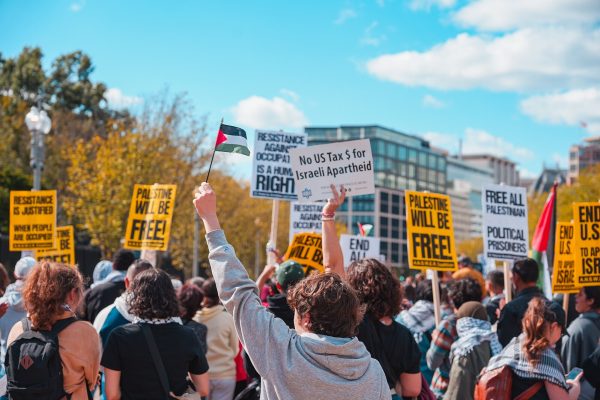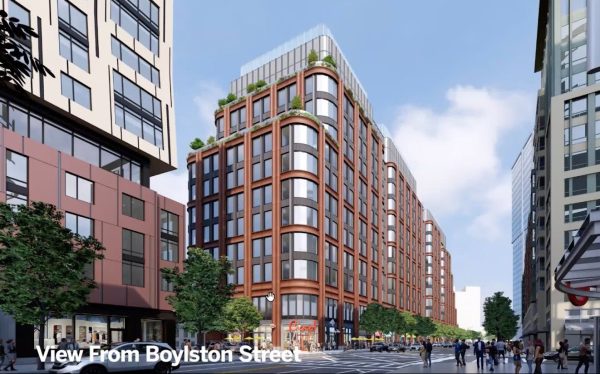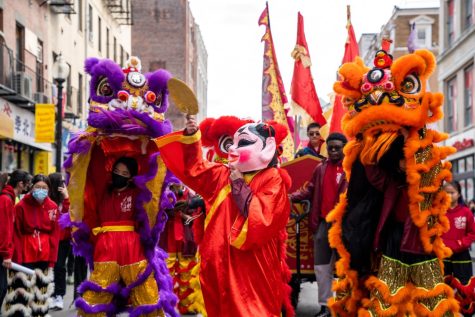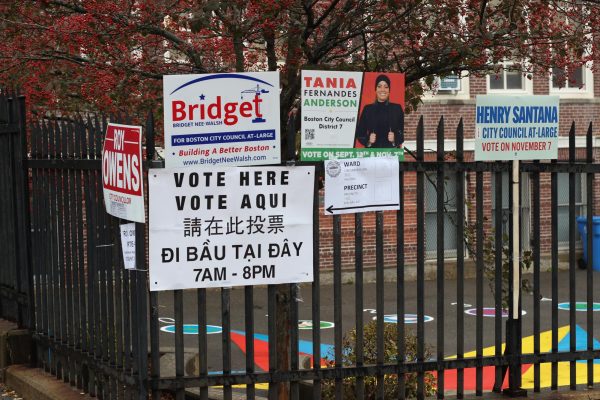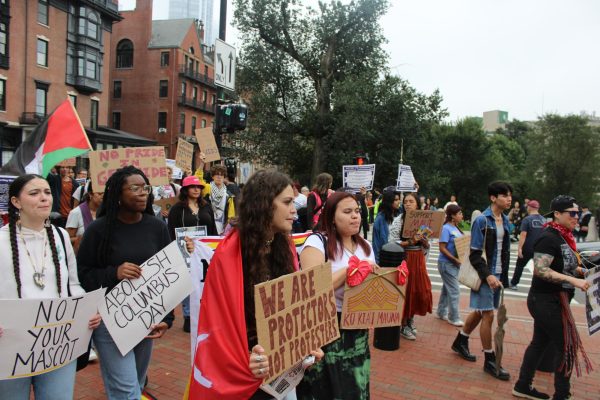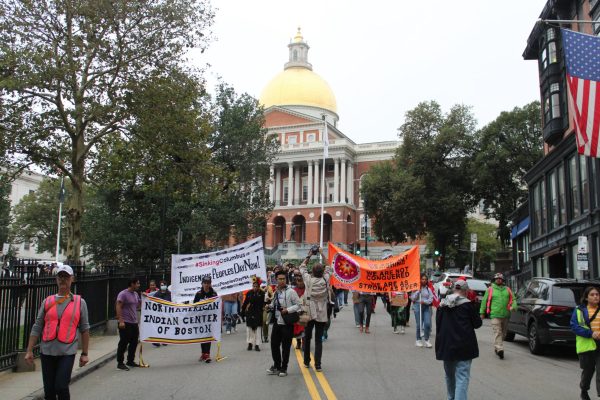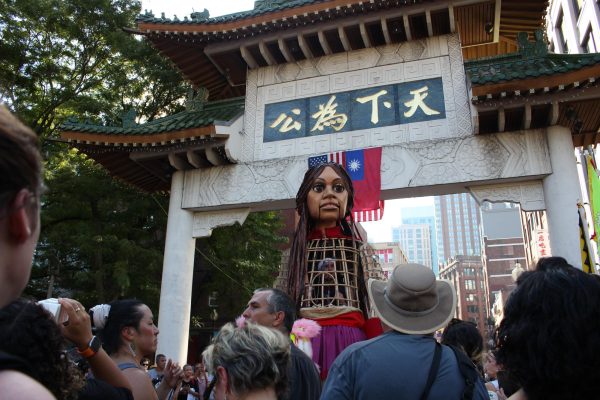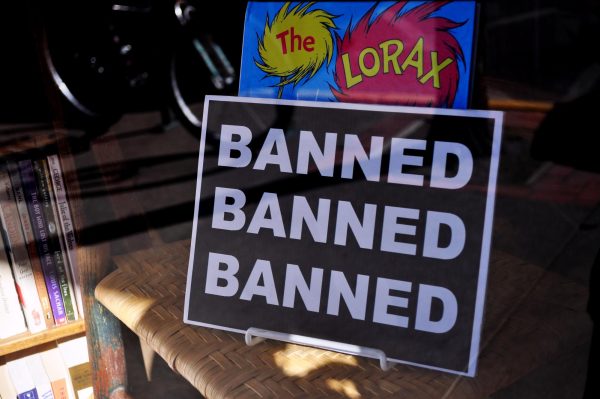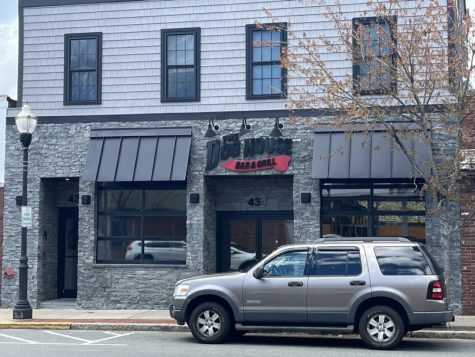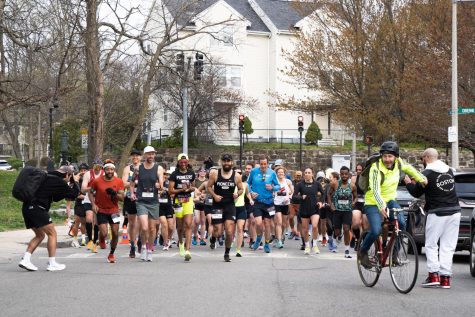Residents and officials join forces to protest MBTA service cuts at Heath Street station
November 9, 2020
The Massachusetts Bay Transportation Authority has announced a proposal for service cuts due to a sharp decline in ridership amid the COVID-19 pandemic. The proposed cuts would reduce hours and frequency of service for the Red, Orange, Blue and Green subway lines, busses and the commuter rail. Ferry services would be eliminated altogether.
On Wednesday, Boston residents gathered at the Heath Street Green Line stop to protest the proposal that would reduce the frequency and scope of public transportation in Boston and surrounding cities starting January, 2021.
Speakers, including Boston City Councilors Kenzie Bok and Michelle Wu to Massachusetts Congresswoman Ayanna Pressley, criticized the MBTA for the proposed changes, arguing that cutting services will negatively impact those who rely on public transit, including many low-income and essential workers. They also pointed to a potential rise in air pollution and traffic levels that could arise from more drivers on the roads.
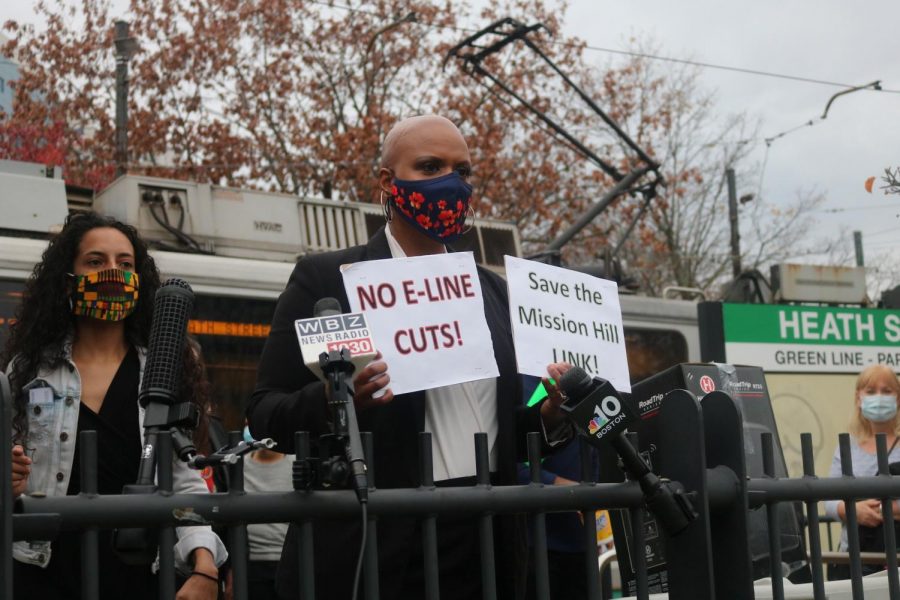
“I think that what the T is proposing today is nothing less than a death spiral,” Bok said at the protest. “It will create a situation in which there isn’t service, people can’t rely on it. . . It will lead to higher asthma rates in our communities, it will shut people out of their jobs. It’s just a disaster.”
The Heath Street T station is the main stop for several different communities in Mission Hill. It sits across the street from the Jamaica Plain VA Medical Center, the Sherrill House nursing and rehabilitation center and Back of the Hill Apartments, an affordable housing complex. Bok also voiced concerns that, if shut down, the Heath Street T stop would not be reopened after the pandemic.
“We have seen in Boston this story before,” she said. “We still have neighborhoods, all communities of color, that lost their trains and never got them back. And we’re here to say that that’s not something we’re gonna let happen here. This is a city where we need to be investing more in public transit, not less.”
If the route was cut short, the Green E line service would end at Brigham Circle, over half a mile away from the Heath Street station. Although the MBTA said in a press release that riders can continue to go to Heath Street by getting on the 39 bus route, longtime Boston resident Roderick Kersey, who attended the protest, said that the proposed changes would make the T inaccessible for many Mission Hill residents.
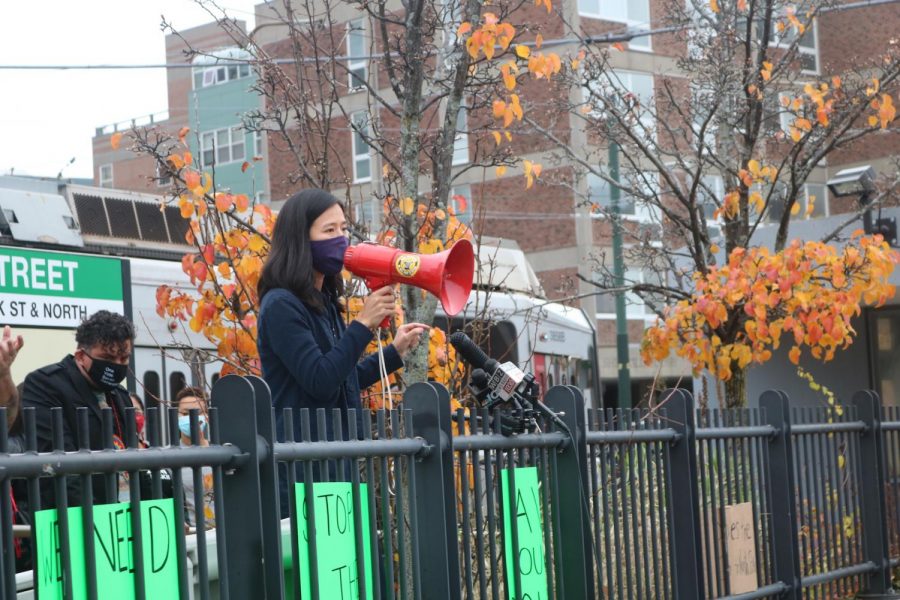
“Folks that live up on the hill where I live, they can go down the other way to Brigham Circle, but most people on this hill are 55 and older, they have mobility issues,” he said. “To make them walk all the way to Brigham Circle to catch the train is not fair, and it’s not right. Our tax dollars pay the salaries of the MBTA and we want this to stay.”
Kersey also criticized the MBTA’s decision to offload Green E line passengers onto the 39 bus, saying that the bus line struggled with overcrowding even before the pandemic.
“They need to figure out ways to deal with the overcrowding issues and one of those ways is not to just take the route out altogether,” he said. “That doesn’t make any sense. That’s not a viable solution to the issue. It’s not.”
Congresswoman Ayanna Pressley emphasized the disproportionate impact that reducing public transit service would have on communities of color that were already hit hard by the pandemic.
“In a three-mile radius from Cambridge to Roxbury, life expectancy drops by thirty years and median household income by fifty thousand dollars,” she said. “A lack of access to affordable, rapid, reliable transit has contributed and created that. This is not naturally occurring. So transit justice is a racial justice issue. It is also a workers’ rights and economic justice issue.”
Councilwoman Wu said the MBTA must prioritize the needs of marginalized residents who depend on the T.
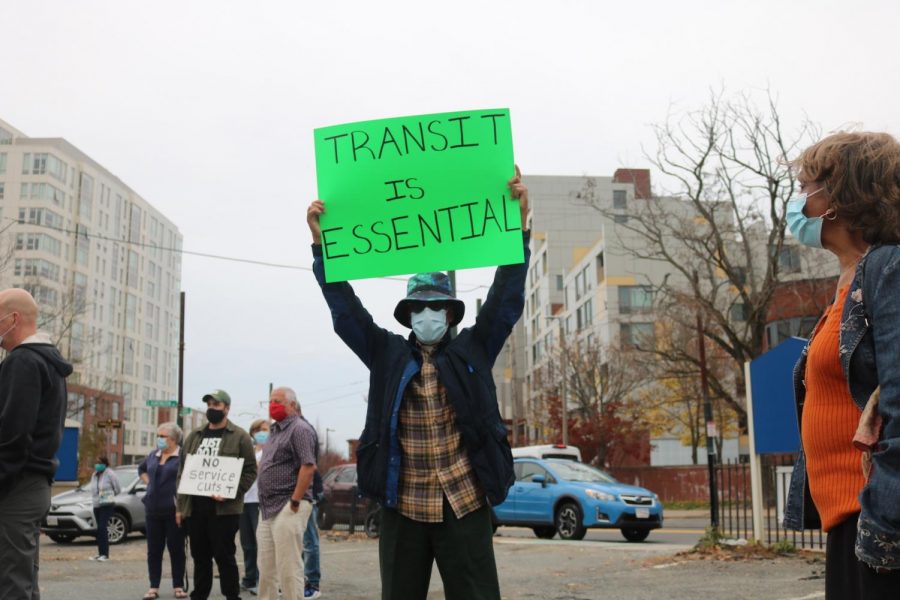
“This is a dangerous move that would crowd people together with less service, less options, during a pandemic when we most need some space apart,” Wu said. “This is a cruel move, immoral to concentrate the harm and the injustices of this pandemic on the very people who cannot afford to bear them.”
LivableStreets Alliance, a Boston-based nonprofit advocating for innovative and equitable transportation solutions, expressed concerns that the service cuts will lead to a long-term decline in T ridership.
“The MBTA previously, throughout the pandemic, has done a really good job of trying to adjust service and inform riders about the crowding so that people can either adjust their schedules or try to be more careful to avoid really crowded buses,” said LivableStreets Community Engagement Manager Kristiana Lachiusa. “With the service cuts, I think that there’s definitely the perception that the T won’t be as safe.”
“If people are scared to ride the T, then we’ll have even more congested roads, so that perception really really matters,” she said. “And then, of course, if the service isn’t good, isn’t adequate to allow people to get back onto the T, it doubles the problem.”
Find out more details about the proposed service cuts from the MBTA in our earlier story below:
The Massachusetts Bay Transportation Authority has announced a proposal for service cuts due to a sharp decline in ridership amid the COVID-19 pandemic. The proposed cuts would reduce hours and frequency of service for the Red, Orange, Blue and Green subway lines, busses and the commuter rail. Ferry services would be eliminated altogether.
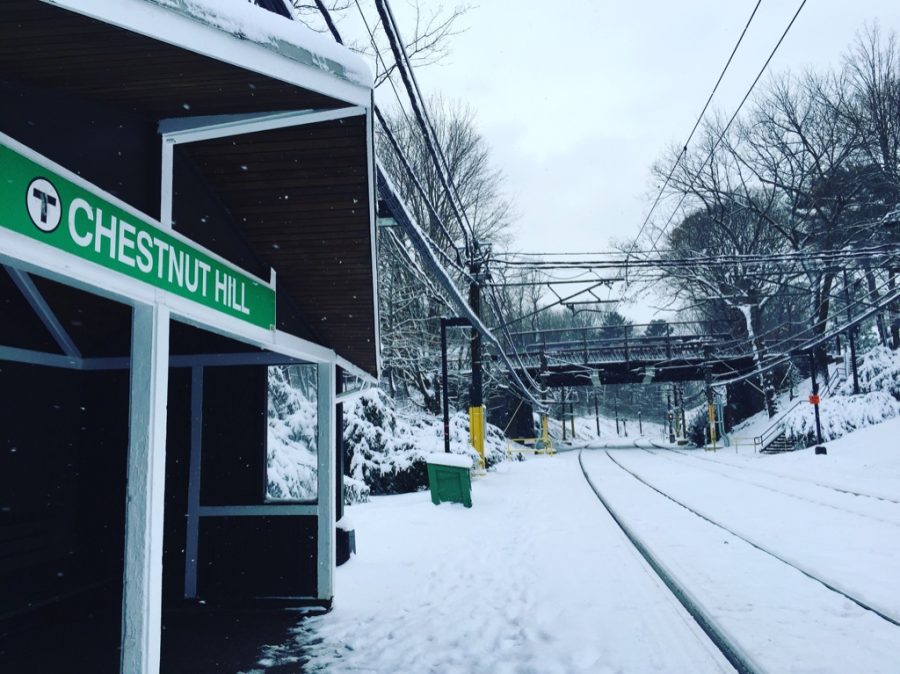
“As a result of the decline in ridership that is similarly impacting transit agencies across the country, the MBTA is now only transporting 330,000 trips on an average weekday — but is continuing to run the same high levels of service as it ran to serve 1.26 million daily trips prior to the pandemic, an unsustainable level of service delivery,” the MBTA said in a press release.
The service cuts, which are part of the MBTA’s “Forging Ahead” plan, is slated to go into effect in 2021, with commuter rail changes launching in January, subway service changes beginning in the spring and bus route changes starting over the summer. The changes are not expected to include a fare increase, according to the press release.
The proposed changes have been widely criticized by local representatives and activist organizations in Boston, who say that cutting services will negatively impact those who commute to work on public transit, including many low-income and essential workers.
“Cutting MBTA service in the midst of a pandemic and economic crisis is short-sighted and dangerous,” said city councilor and mayoral candidate Michelle Wu in a email statement to the Scope. “Longer waits, loss of weekend service, and eliminated stops means more risk to public health, more traffic, and more burden on the very communities devastated by the pandemic.”
Wu said in the statement that she filed a formal resolution opposing the service cuts on Oct. 30, and urged the Fiscal Management and Control Board to hold off making any decisions until they have a clearer idea of what federal resources will be available in 2021.
The MBTA will be holding 11 public meetings about the proposed changes throughout November and December to answer questions and get feedback from residents. The meetings will be held over Zoom, with nine regional meetings covering proposed changes in different geographic areas, and two general meetings. The regional meeting for Boston and Milton will be held on November 14 at 1 p.m.
You can find more details about the proposed service cuts from the MBTA’s press release below:
The Red, Orange, Blue, and underground Green Line proposed changes:
- Weekday and Saturday service will operate from 5 a.m. to midnight (currently service is until 1 a.m.) and Sunday service will operate from 6 a.m. to midnight (currently service is until 1 a.m.).
- Reduce peak frequency by 20 percent and reduce off-peak frequency by an additional 20 percent on all lines.
- The Green Line E Branch will terminate at Brigham Circle with customers able to transfer to Bus Route 39, which resembles the E Branch service from Brigham Circle to Heath Street.
Buses proposed changes:
- All bus service will stop at midnight, though early service will continue on essential bus routes.
- Eighty essential bus routes will see an average change in service of just 5 percent and routes with high ridership will not be changed.
- Sixty non-essential bus routes will operate 20-30 percent less frequently.
- Approximately ten routes will be consolidated or restructured.
- Approximately twenty-five routes that served less than 0.5 percent of pre-COVID riders (about 1,700 riders) will be terminated.
Commuter Rail proposed changes:
- No evening service after 9 p.m.
- No weekend service (except for the Fairmount Line, which will be bused).
- Decreased weekday peak service and some midday service, reducing from 505 trains (fall 2019) to 430 trains.
- Close six (out of 141) stations based on low ridership, operational impacts, and availability of alternatives.
- Specific service levels by line will take into account ridership patterns from adjusted Fall 2020 schedules with more balanced service throughout day.
Ferry proposed changes:
- Charlestown/Boston service (F4) has experienced very low COVID ridership and highly redundant bus service is available on Route 93 (an essential bus route which currently has minimal crowding and can support diverted ferry riders.
- Hull and Hingham service has also experienced very low ridership due to COVID-19 and passengers can use the Commuter Rail Greenbush line.
The RIDE proposed changes:
- With changes being proposed to the area and hours of operation of fixed route services, some RIDE trips may become “premium trips,” though RIDE service boundaries would not change.
- Some trips will be able to be booked forty minutes from request time instead of the current thirty minutes.

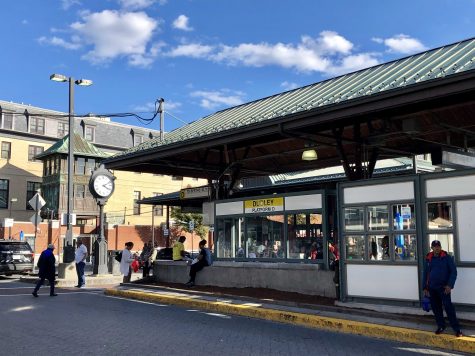

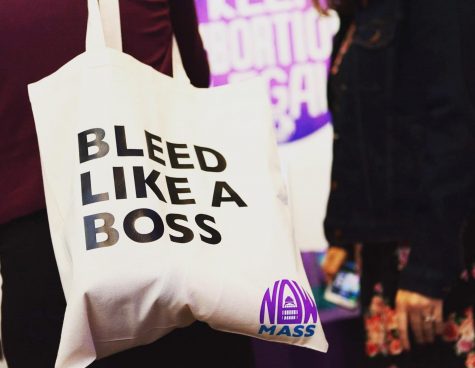
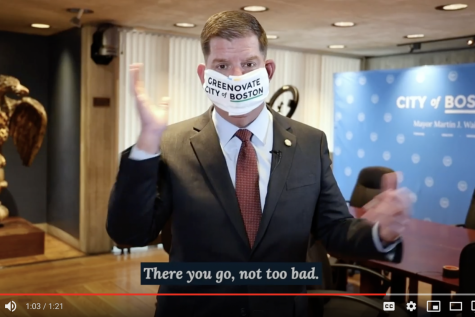


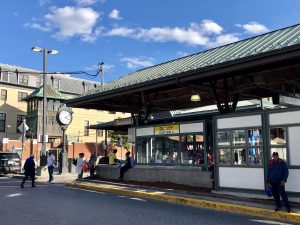
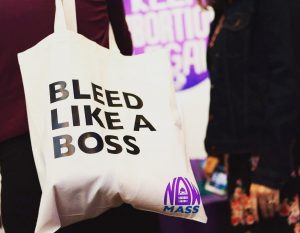




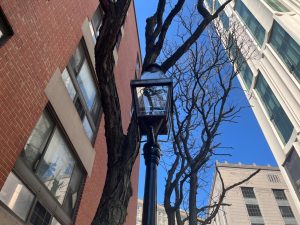
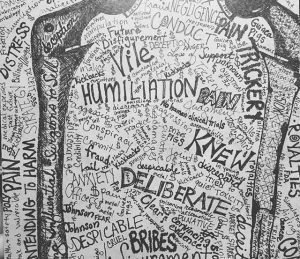
![Worcester, MA — Pearson’s recent piece “Lipstick on a Pig” contends with her self-perception. The title of the painting came to her first, “fixating in [her] head quite a lot,” Pearson said.](https://thescopeboston.org/wp-content/uploads/2024/03/2-300x200.jpg)

